Portugal’s culinary renaissance
On the global culinary stage, Portuguese cuisine has long played second fiddle. But with Henrique Sá Pessoa opening up a new restaurant in Amsterdam, and Nuno Mendes in London, the Atlantic country in Europe’s southwesternmost corner is more than ever claiming its rightful place.
Up until he was 17 years old, Henrique Sá Pessoa dreamt of becoming a professional basketball player. But given his short build, he realised his chances to become an NBA star were slim. However, during holiday trips with his teenage friends he somehow was always the designated chef. And so followed his career. Although he was a head chef at 24, his rise to fame was slow. “I never trained with a famous chef. So I wasn’t set in a certain mold. It allowed me to find my own style, but it also meant I couldn’t launch my career as ‘the star pupil of’, like my colleague José Avillez, who trained with Ferran Adrià at El Bulli, did when he opened his Belcanto.” Although Avillez and Sá Pessoa have their restaurants across the street from each other in Lisbon, there is no rivalry. “There was no colleague as happy as José after I got my second Michelin star for restaurant Alma,” Sá Pessoa says. With Lisbon’s tourist industry burgeoning, both of them understand that there are more than enough diners to sustain two top-notch restaurants.
Lisbon classics in London
Sá Pessoa and Avillez are exponents of a growing contingent of chefs who are venturing outside the confinements of the motherland. Although both have restaurants in Macau, a former Portuguese colony, it really is the spread to non- Lusophone countries that is starting to carve out a place for Portuguese cuisine on the world stage. Nuno Mendes’s story is only different in that he spent most of his culinary life abroad. After having helped his father at the family farm in the Alentejo, he went to culinary school in San Francisco, worked in several different countries (among others with Jean-Georges Vongerichten in New York and Ferran Adrià in Spain) and eventually settled down in London. Lisboeta may not be his first London venture – he was the culinary mind behind famous restaurants like Viajante and the Chiltern Firehouse –, but with innovative Lisbon classics, this project, for which Mendes laid the foundation with his eponymous cookbook, is closest to his roots.
Portuguese chefs abroad
But the list is longer. In Budapest (of all places), no fewer than two starred restaurants are led by Portuguese chefs: Costes by Miguel Rocha Vieira and Essência by Tiago Sabarigo and his Hungarian wife Éva Jenei. And while ALMA alumnus Jessica Carreira and her husband David Costa now run San José’s only one-star restaurant Adega, George Mendes has been paving the way in New York with Aldea until 2020 and now at Veranda. Moreover, Leandro Carreira (from restaurant The Sea, The Sea in London) has just published an encyclopedic cookbook in collaboration with Miguel Andrade, the Lisbon-based food researcher and writer. Mendes gently corrects the narrative – many of these chefs may be Portuguese, but they do not necessarily cook Portuguese. Nonetheless, it is a remarkable line-up.
Why Portuguese cuisine emerges
So, why is Portuguese cuisine suddenly emerging, I ask Andrade via Zoom. “This is quite a recent development,” he says. “After the financial crisis of 2008, the Portuguese economy went through a big dip. When it climbed out of it, several European cities like London, Paris and Madrid were affected by major acts of terrorism in the mid-2010s. Portugal and Lisbon were perceived as safe destinations. Tourism grew dramatically and with it the awareness of Portuguese food.” Now the world is reaping the benefits.
Atlantic cuisine
But what is Portuguese cuisine? I wonder out loud while I have coffee and tea with Sá Pessoa in the lounge of the art’otel in central Amsterdam, where ARCA is based. “More than anything else Portuguese cuisine is an Atlantic cuisine that goes far beyond sardines and bacalhau”, he says. It brings back Sá Pessoa’s version of Bulhão Pato, a traditional dish of clams and coriander I ate at ALMA, where it was turned into a coriander-green creamy, runny risotto-like dish with clams (obviously) and seabass, possibly the best rice dish I ever ate.
Lisboeta, London ©Lisboeta
Continental and regional cuisine
“But there is also a continental aspect to Portugal’s cuisine”, Sá Pessoa continues. “Our pigs are the best for jamon ibérico”. He reminds me of the fact that the toponym Iberia refers to Spain and Portugal, but admits that conditions for drying the ham are better in Spain. “Moreover, Portuguese cuisine is a regional cuisine: Beira Interior and Algarve, for instance, are very different.”
Fresh and preserved
Against the trend, Sá Pessoa is not a great practitioner of preserving. “Portugal’s mild climate warrants the supply of fresh produce throughout the year,” he says. “Nonetheless,” Andrade explains, ”preserving has always been an important part of the Portuguese fishing industry. Cod is dried and salted; Tuna, sardines and mackerel are canned in olive oil, which is abundantly available in very good qualities.” Canned fish used to be poor man’s food, but now it is convenience food.
Influence from the former colonies
One of Nuno Mendes’s missions at Lisboeta is to show that, despite similarities, Portuguese is different from Spanish cuisine. He emphasizes Portugal’s mercantile history as a major influence on the country’s culinary heritage. Alentejan pork trotters, for instance, were influenced by the country’s presence in China and the spicy peppers for piri piri came from Mozambique. With his vindalho empada, a delicious, flaky pastry cup stuffed with spicy pork ragout, Mendes is paying tribute to Portugal’s former colony Goa. All three mention the use of coriander with which Portugal distinguishes itself from its big neighbour.
Andrade, responsible for the historical background of the recipes in Leandro Carreira’s cookbook, also tells me about the importance of spices (clove, cinnamon, nutmeg, etc.) the Portuguese brought back from their “journeys” to Africa and Asia.
Convent sweets
But perhaps most fascinating is the history of the so-called convent sweets. In the sixteenth century the convents were populated with orphans, daughters from rich families and the younger children that families couldn’t support. They all brought their specific recipes, and the rich in particular brought their maids who had the skills to bake and cook. Madeira’s and later Brazil’s status as major cane sugar producers, guaranteed a continuous supply of the sweet commodity. Combined with eggs, almond, carob and walnut a variety of cakes, biscuits and other doces, such as the pastel de nata entered Portuguese cuisine. Sá Pessoa’s indulgent Pudim Abade de Priscos (abade = abbot), a caramel port flan, is a prime example. The yolk was typically a rich man’s ingredient. In the late nineteenth century simpler, lighter and cheaper desserts, such as the bolo d’arroz and bolo de bolacha were added to the roster. In Mendes’s rendition, the last, originally a layered cake of coffee-drenched Maria biscuits and butter cream, consists of a liquid coffee cream with crumbled biscuits and ice cream topped with soft blow-torched meringue and dusted with cinnamon. An absolute delight!
In short, Portuguese is an amalgamation of colonial, Atlantic, continental and religious influences.
From the Dehesa to the wild Atlantic seaboard
At ARCA this diversity was clearly discernible in two contrasting and typical dishes: octopus salad and bochechas de porco ibérico (Alentejo pork cheeks). The first consisted of perfectly tender pieces of octopus and small cubes of potato (good bite) with a brunoise of green and red bell pepper and onion in an olive oil dressing seasoned with paprika. The pork cheeks, braised in spiced wine, were soft as butter and served with a velvety celeriac purée, fried triangles of celeriac and peeled off petals of Brussels sprouts with a hint of horseradish. Both dishes succeeded gloriously in transporting you to the wild Atlantic seaboard and the softly undulating, oak and cork tree speckled grasslands of the Portuguese dehesa respectively. Given the Dutch comprehension of Asian ingredients, I was surprised by the mildness of the dishes. A bit more piri piri or sambal could have given the fish and seafood dishes in particular more definition.
ARCA Amsterdam, Arroz de Marisco ©ARCA
Begging to be mopped up
Integrating the coastal and the continental in one dish, Nuno Mendes served Morcela (soft blood sausage or black pudding) and Lingueirão (razor clams) on toast. Especially the razor clams (notoriously difficult to prepare – they easily get tough, unless served raw, as was the case in this dish) were particularly good. The briefly grilled, but almost completely raw carabiniero (from the deep sea of the Portuguese coast) was another highlight. The oily and firm (but not chewy) texture was perfect. The accompanying deeply flavoured garlic and piri piri sauce was begging to be mopped up with crusty fresh bread, which I did.
Different atmosphere, same cuisine
Neither Lisboeta nor ARCA are what Sá Pessoa calls ‘memory style’ restaurants where pop and mum serve simple Portuguese fare. Lisboeta is spread out over three floors in a townhouse in central London. Blond wooden tables and chairs and green paneling give the space, despite its narrowness, a modern and light feel. With black and yellow seats, dimmed lights and a large open kitchen, ARCA’s interior is sleeker and darker. The beats are mellow until the volume goes up at 9pm and a saxophonist starts filling the space with groovy tunes. Sà Pessoa pursues a cool and urban, good value-for-money restaurant. Although the atmosphere of the locales may be different, they both demonstrate that Portuguese cuisine is coming into its own and is finding its way to the non-lusophone stages of the culinary world.
ARCA
Martelaarsgracht 5
1012 TM Amsterdam
Netherlands
T: +31 20 820 5333
Lisboeta
30 Charlotte Street
London
W1T 2NG
UK
T: +44 20 3830 9888
COOKBOOKS:
Leandro Carreira (with Miguel Andrade)
Portugal: The Cookbook
Phaidon 2022
Nuno Mendes
Lisboeta: Recipes from Portugal’s City of Light
Bloomsbury 2017
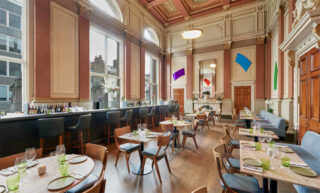
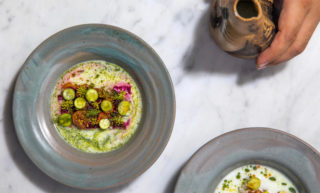
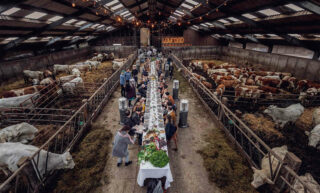
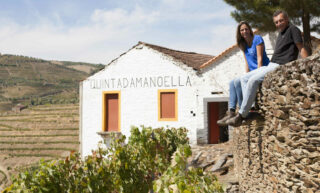
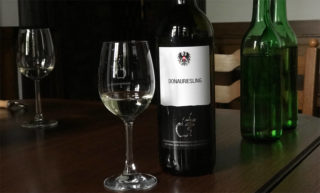
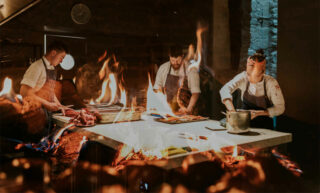
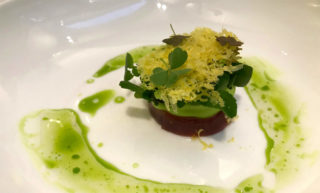
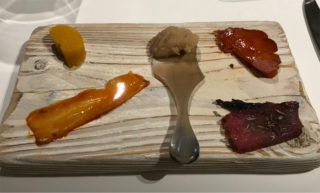
Comments